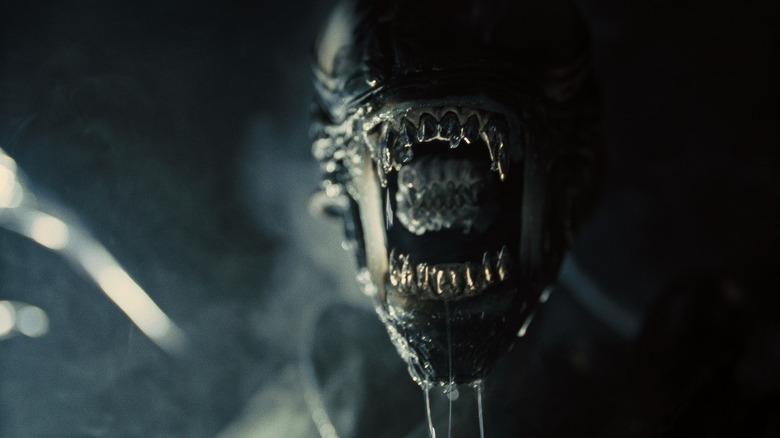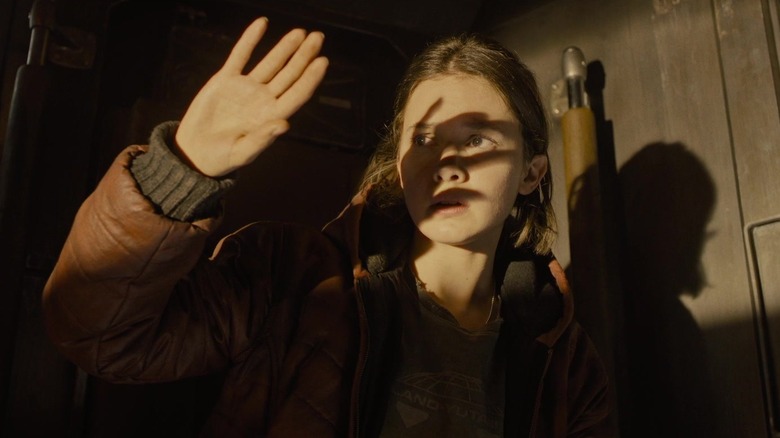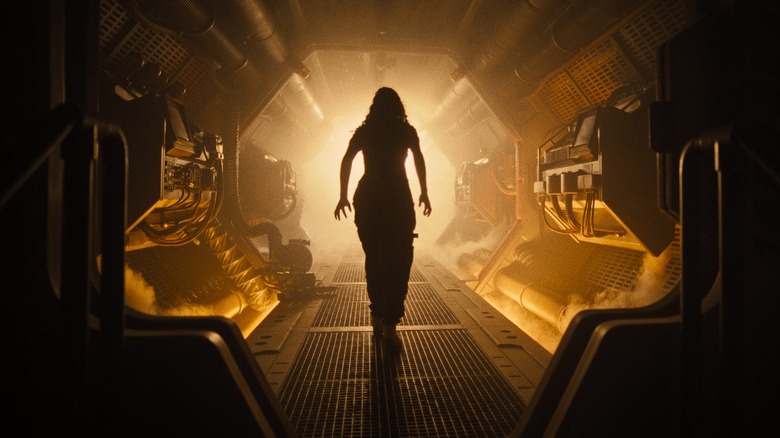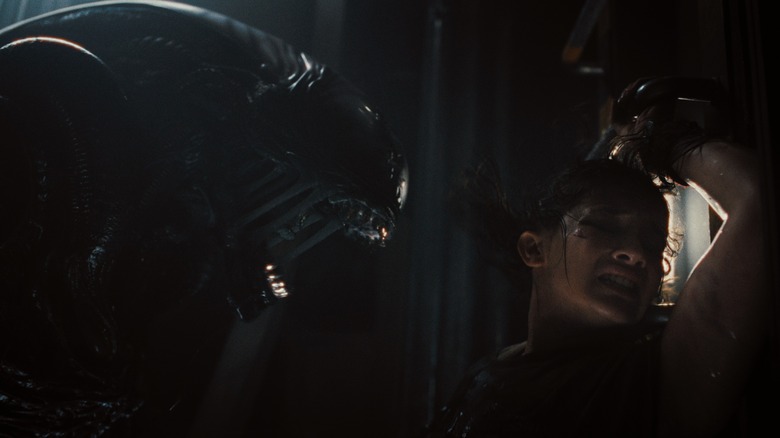I’ve always maintained that there are no bad Alien movies (we’re ignoring the Alien vs. Predator movies for this particular hot take because, well, they just don’t count). Ridley Scott’s Alien is a masterpiece of sci-fi horror; an elegant, terrifying nightmare that’s just as good today as it was when it hit theaters in 1979. James Cameron’s Aliens is a pulse-pounding action spectacle filled with iconic moments of cool. Even in its studio-meddling form, David Fincher’s Alien 3 is a dark, fascinating horror show that’s not afraid to go to the most desolate of places. Jean-Pierre Jeunet’s Alien: Resurrection is deeply flawed, yet so unabashedly weird that I can’t help but appreciate it. And Scott’s two prequels, Prometheus and Alien: Covenant, take the franchise in strange, exciting new directions, suggesting a cold, cruel universe where humanity’s godlike creators exist – and they hate us with all their heart.
The quality of these films varies (and none of them manage to capture what makes Scott’s original film so damn good), but they are a remarkable collection of stories, each heading in its own direction. Perhaps the most commendable thing about these films is that while they all feel connected, no two are exactly the same. Each of them feels like it’s going its own way.
That’s why Fede Álvarez’s new entry in the series, the sequel-prequel Alien: Romulus, is ultimately so disappointing. This isn’t a bad film by any means—it’s a triumph of production design, well directed, and loaded with plenty of icky tension and chills. And yet Romulus has no ambition. It’s less a new entry in a long-running series than a collection of greatest hits moments. It’s like a cover band that knows how to play all the right notes but dares to add something new to them. It’s The Force Awakens of the Alien series, a film drowning in unquestioned overfamiliarity. Álvarez is so obsessed with quoting “cool” moments from the previous films that Romulus ends up lacking an identity of its own. There are several moments where it feels like the characters have actually seen the previous Alien films and are quoting directly from them. I suspect most moviegoers won’t mind this, they’ll enjoy all the references and Easter eggs. But in a franchise that’s never been afraid to take risks, Alien: Romulus plays it frustratingly safe.
Alien: Romulus is often like a video game
Set 20 years after the first Alien, Alien: Romulus begins on a desolate mining planet where the sun never rises. It’s like Mordor from Lord of the Rings meets the perpetually rainy futuristic Los Angeles from another Ridley Scott film, Blade Runner. It’s enough to drive you crazy, and Rain (Cailee Spaeny) wants nothing more than to get to a place with some sunlight. Unfortunately, like everyone else trapped on the mining planet, Rain works for the infamous Weyland-Yutani Corporation, and they have the final say on whether or not she can leave. And just when Rain thinks she’s finally earned enough credits to get out, she’s told she has to work in the mines for another six years. That’s space capitalism.
Hope comes in the form of an abandoned space station suddenly orbiting the planet. Rain is recruited by her boyfriend Tyler (Archie Renaux) to help with a little space heist: blow up the space station and steal some cryosleep pods on board. It turns out the planet everyone is trying to escape to takes about 9 years, meaning the only reasonable way to travel there is for everyone to sleep. Along for the ride are Tyler’s sister Kay (Isabela Merced), miserable douchebag Bjorn (Spike Fearn), and cool pilot Navarro (Aileen Wu). Why do these people need Rain for their mission? The truth is, they don’t need him. They actually need Rain’s brother, a childlike android named Andy (David Jonsson). Since Andy is officially a piece of Weyland-Yutani technology, he’s like a walking key – he can hack into the space station with just the touch of his finger. Convenient.
Unfortunately for everyone involved, the space station, which is divided into two sections called Romulus and Remus, has been the site of some questionable scientific experiments involving those pesky, sticky Xenomorphs, meaning everyone is in serious danger. And so the stage is set for a video game-like saga in which the characters end up in separate groups and must move from point A to point B while trying not to become alien fodder.
Romulus is fearsome and effective when necessary
Álvarez, who directed the bloody “Evil Dead” remake and the home invasion thriller “Don’t Breathe,” knows how to build tension, and there are moments in “Romulus” that make your heart race and intentionally make you feel uneasy. The fact that the filmmaker seems to use special effects as often as possible – from creepy facehuggers to slimy xenomorphs that distort their anatomy – adds to the atmosphere. However, “Romulus” also uses a certain (and spoiler-filled) digital special effects work that is so gruesome and wrong that it basically destroys the reputation the filmmaker seems to have earned with his special effects.
Still, Romulus is creepy and effective when it needs to be, aided by Galo Olivares’ menacing cinematography and Benjamin Wallfisch’s terrifying score. As a production value, Romulus is top-notch. I particularly liked that all the technology the characters use has a retro vibe that matches what we saw in 1979’s Alien. But there’s a distinct lack of life to the proceedings, which is exacerbated by Álvarez and company’s seemingly obsession with referencing things from previous Alien films. Whole shots are lifted directly from the previous one, and there are numerous instances of characters repeating lines from the other films verbatim. Why? Why is modern filmmaking of franchises so obsessed with familiarity? Why do we constantly need to be reminded of what came before in tongue-in-cheek, obvious ways? Is that asking too much for something new?
Right now, I can feel the groans of some readers. “This is the ninth installment in the series, that’s asking too much!” these people say. “Who cares if the film is full of Easter eggs? This is a sequel that goes back to basics!” Good! Good! But even from that perspective, “Romulus” struggles to connect. The characters are interchangeable and often forgettable. Spaeny is a good actress, but her Rain is almost completely empty as a character; she has nothing to work with. Only Jonsson, as the android Andy, really makes an impression, creating an unforgettable character in the process.
Alien: Romulus is not bad, just disappointing
Álvarez clearly wanted to emulate the brutal simplicity of the original Alien here, but Romulus is so keen to play it safe that the results are often tepid. I don’t need big, weird twists in every Alien movie. Sometimes it’s OK to shut up and play the hits. But if you’re going to take that approach, you better make damn sure you’re doing something solid in the process. I’m not saying Romulus had to be as weird and unique as the previous two Alien prequels, but I certainly would have liked it better if it felt like it had something, anything to contribute something to the entertainment.
To be fair, Álvarez, who co-wrote the film with Rodo Sayagues, brings a fresh, twisted energy to the film’s final act, but by this point, “Romulus” has remained so rigid in its paint-by-numbers approach that it feels like too little, too late. That’s not to say “Romulus” is completely worthless. Those craving a well-made monster movie with scary creature effects and solid scenes will likely find plenty to like here. But it shouldn’t be controversial to wish for better results. As I said at the start of this review, there are no bad “Alien” movies. But “Alien: Romulus” is definitely a disappointing one.
/Film rating: 5.5 out of 10
“Alien: Romulus” will be released in theaters on August 16, 2024.





